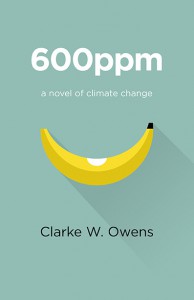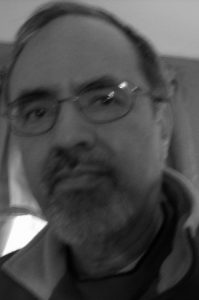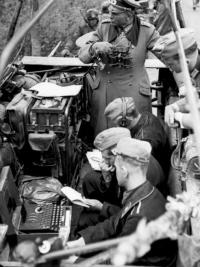
 I've always written. As an adult, I've usually managed to publish
some type of writing, even if it hasn't always been my novels. I studied creative writing at UC Davis in 1975-76, working with some great writers there. In 1977, I got lucky and won a prize in a
poetry contest. Since then, it's been quite a miscellany, but the creative work has improved since 2000, and I've published in many literary journals, mostly poems. 600ppm is my second book, and first novel. Survivors, a short story, will appear soon in a climate fiction anthology by Sunbury Press.
Another climate dystopia, The Lover of Oceans, is currently seeking a publisher. Another short novel (title keeps changing) is under revision, and is about sexual harassment in graduate school. For
the past 17 years, I've made a living as a criminal lawyer, and expect to retire from that next year. I grew up in California, but have lived in Ohio for more than half my life now. I’m married to
Deborah Fleming, also a poet and novelist.
I've always written. As an adult, I've usually managed to publish
some type of writing, even if it hasn't always been my novels. I studied creative writing at UC Davis in 1975-76, working with some great writers there. In 1977, I got lucky and won a prize in a
poetry contest. Since then, it's been quite a miscellany, but the creative work has improved since 2000, and I've published in many literary journals, mostly poems. 600ppm is my second book, and first novel. Survivors, a short story, will appear soon in a climate fiction anthology by Sunbury Press.
Another climate dystopia, The Lover of Oceans, is currently seeking a publisher. Another short novel (title keeps changing) is under revision, and is about sexual harassment in graduate school. For
the past 17 years, I've made a living as a criminal lawyer, and expect to retire from that next year. I grew up in California, but have lived in Ohio for more than half my life now. I’m married to
Deborah Fleming, also a poet and novelist.
Who are the great characters in literature? Which ones capture our (or at least my) imagination best? Huck Finn, Pip in Great Expectations, Holden Caulfield. These stand out in my mind because
I believe them. I believe in what makes them tick. Interesting that they're all first person narrators, and in some ways each of them influenced my first person narrator in 600ppm, not that I'm at that level. In the first two, especially, you see that major growth, which is moral and social. In Holden Caulfield,
it seems less to be growth than the mere convincing sound of his adolescent voice. I recently re-read Catcher In the Rye and was less taken with the voice than I had been when I read the novel at age
16. He seemed more like a spoiled brat than he had before, yet I was still drawn in. Credibility is key, no  matter how wildly imaginative the fictional world.
matter how wildly imaginative the fictional world.
Plot, too, has to be credible, and it should grow out of character. You could say that 600ppm is a "genre novel", because it has a future dystopia setting, but the story has to come out of the character and the social issues one is dealing with. I often find mysteries disappointing because the plot seems superimposed on (in many cases) rather thin characters. We get to the end and the bad guy gets killed in a shoot-out, and it seems ho-hum. When Ahab gets killed at the end of Moby-Dick, that is not ho-hum. That is grand and inevitable, mysterious and yet meaningful.
600ppm is set in 2051. Climate change has led to the flooding of eastern U.S. coastal cities. The West is a waterless desert. Refugees migrate northward. Food and water are tightly rationed amid endless war.
Buy the paperback of 600ppm– AMAZON US AMAZON UK INDIEBOUND
Order the ebook of 600ppm – AMAZON US AMAZON UK INDIEBOUND
Categories:
0 comments on this article







